There are so many factors to consider when choosing a kitchen benchtop. From durability, how porous the material is, how hygienic it is, is it the best for the size of your kitchen, and do you actually, y’know, like the look of it? Oh, and the cost. For most of us, this is (annoyingly) a consideration.
We’ve rounded up six popular benchtop materials and their pros and cons, to give you the low-down on each.
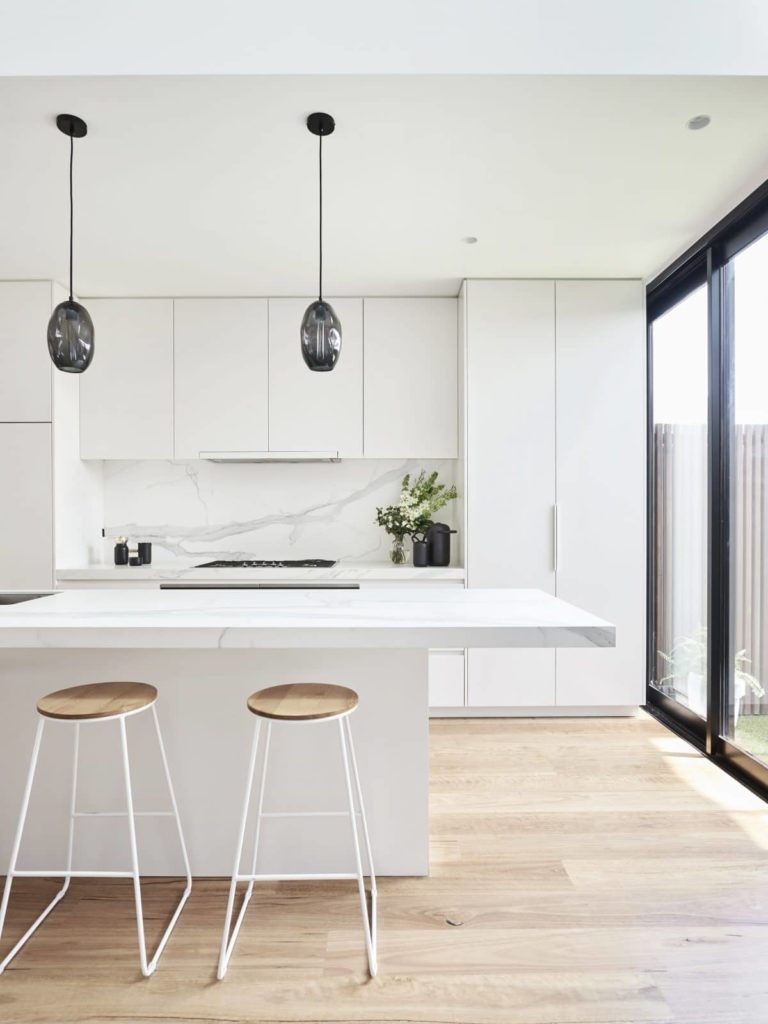
1. Engineered stone
Engineered stone is made up of bits of quartz or granite, marble dust and glass, mixed together with resin and pressurised. The result is a hard-wearing, beautiful material.
The pros: Engineered stone is available in a wide range of styles, colours and finishes. It’s not as porous as marble or granite so doesn’t need to be sealed and is easier to look after.
The cons: It can be prone to chipping. Price-wise, depending on the style and brand you choose, it can be on par with granite.
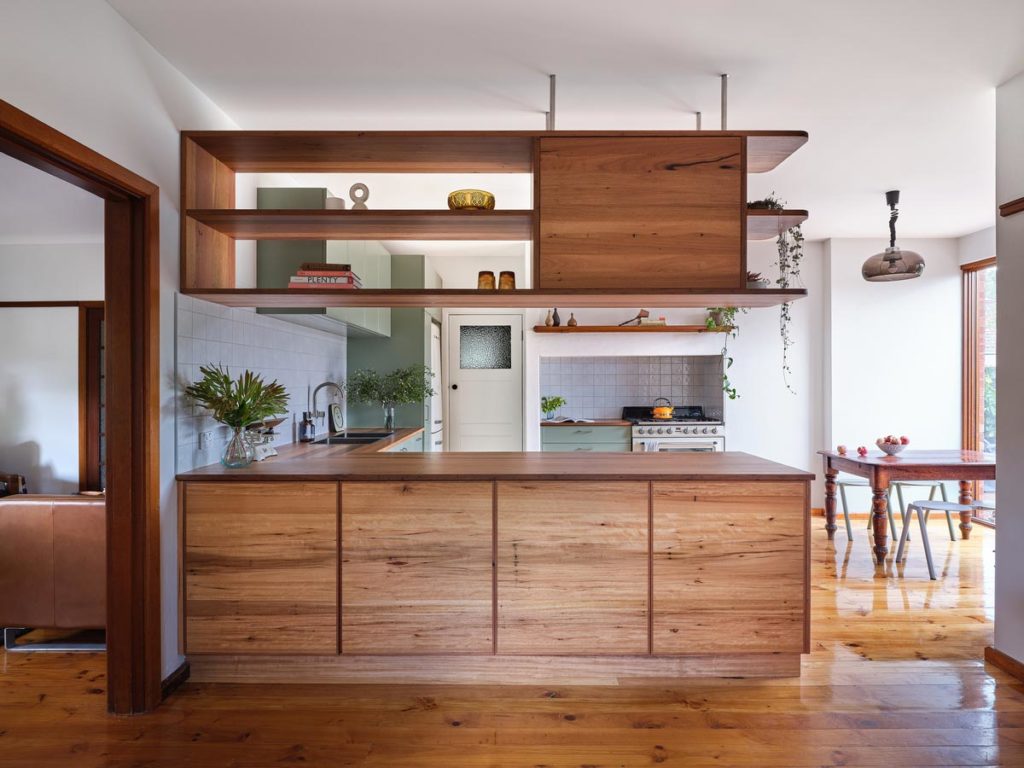
2. Wood
Using wood as a benchtop is a great way to soften the look of your kitchen.
The pros: Wood can improve with age as it gets ‘character’. It’s also relatively easily restored with a sand-back and a reseal. There’s a large range of species you can use, offering a wide selection of colours. There are wood options that are friendly on the ol’ hip pocket, however, this will depend on the size of your benchtop and the type of wood you choose.
The cons: If you’re after a maintenance-free option, wood probably isn’t for you. Being slightly porous also means it’s not quite as hygienic as other materials.
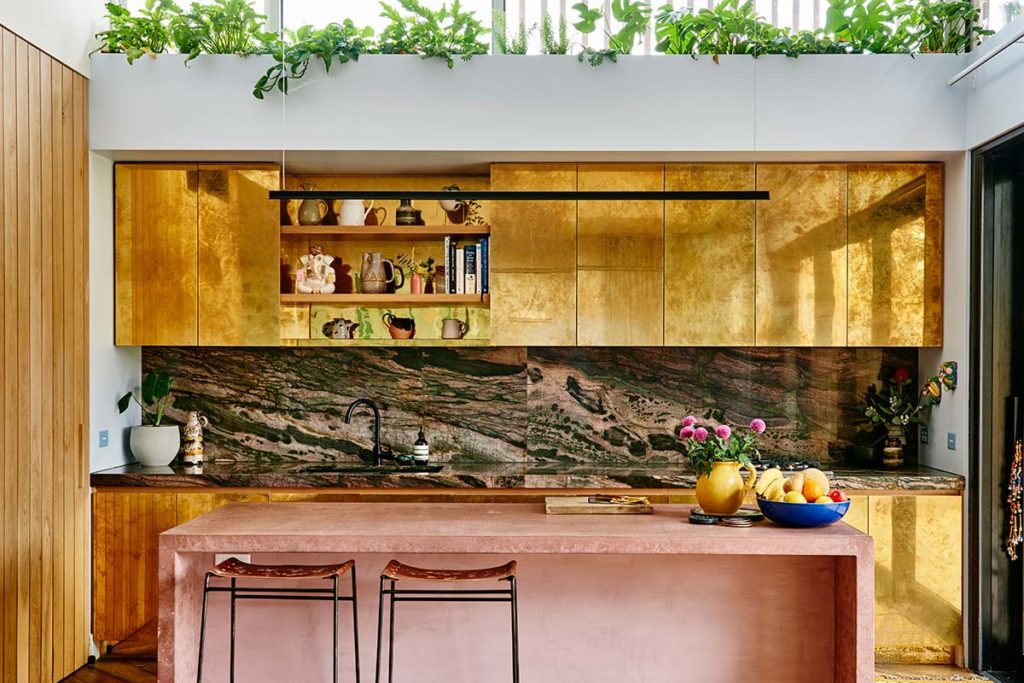
3. Concrete
Concrete benchtops can add a modern or minimalist touch to your kitchen aesthetic.
The pros: There are plenty of pros to using concrete as your benchtop material. The nature of it being custom manufactured means size and shape are easily adjustable. Concrete is available in a huge range of colours and textures, so you’re not bound to grey. It’s also a durable material and easy to clean. So many wins!
The cons: If you’re thinking ‘concrete is cheap. This is a good option.’ Think again. Concrete benchtops require a skilled technician for fabrication and you’ll pay accordingly.
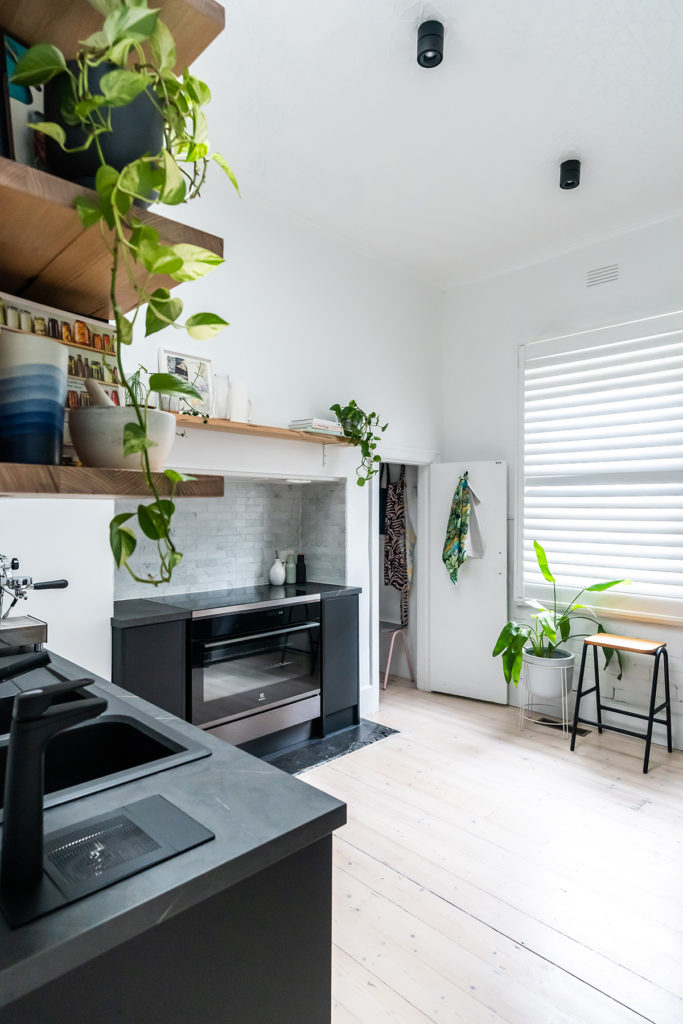
4. Laminate
Laminates have come a long way in the past few years and are a far cry from the laminate benchtops of your childhood home.
The pros: laminate is easily the most wallet-friendly benchtop option. There are plenty of good quality laminate options available in a huge range of colours and styles, so there’s a decent chance you’ll find something that fits with the look you’re going for. The smooth finish means most things can easily be wiped away.
The cons: Laminate is slightly porous and over time marks and stains may linger. Laminate can also chip if something heavy is dropped on it and if the melamine coating layer is broken, water can seep in, causing the chipboard underneath to expand.
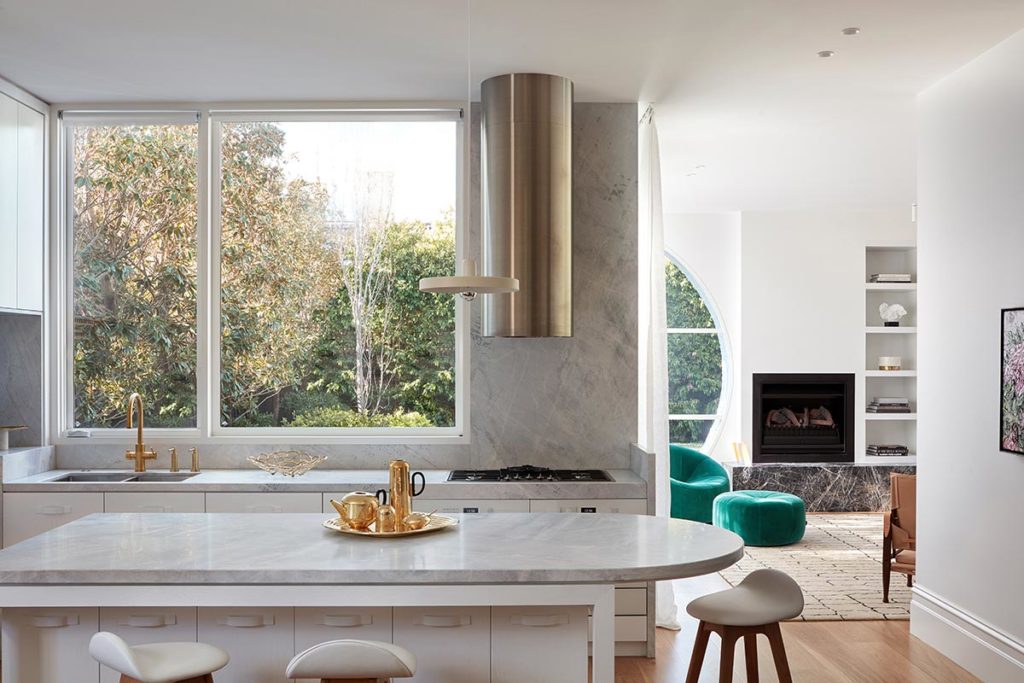
5. Marble
We don’t know about you, but as soon as we think ‘marble’ we think ‘luxe’. But hold your horses, there are a few other things to consider.
The pros: It’s really damn beautiful. Being a natural material, the patterns of the stone will make your kitchen feel one of a kind.
The cons: Marble is expensive. Sorry to be a killjoy, but there, we said it. It’s also a very unforgiving material – it chips easily, stains easily, won’t appreciate a saucepan fresh off the stove and doesn’t play nicely with acidic foods such as lemons. Being a naturally occurring material, you’re also slightly limited when it comes to shape and size.
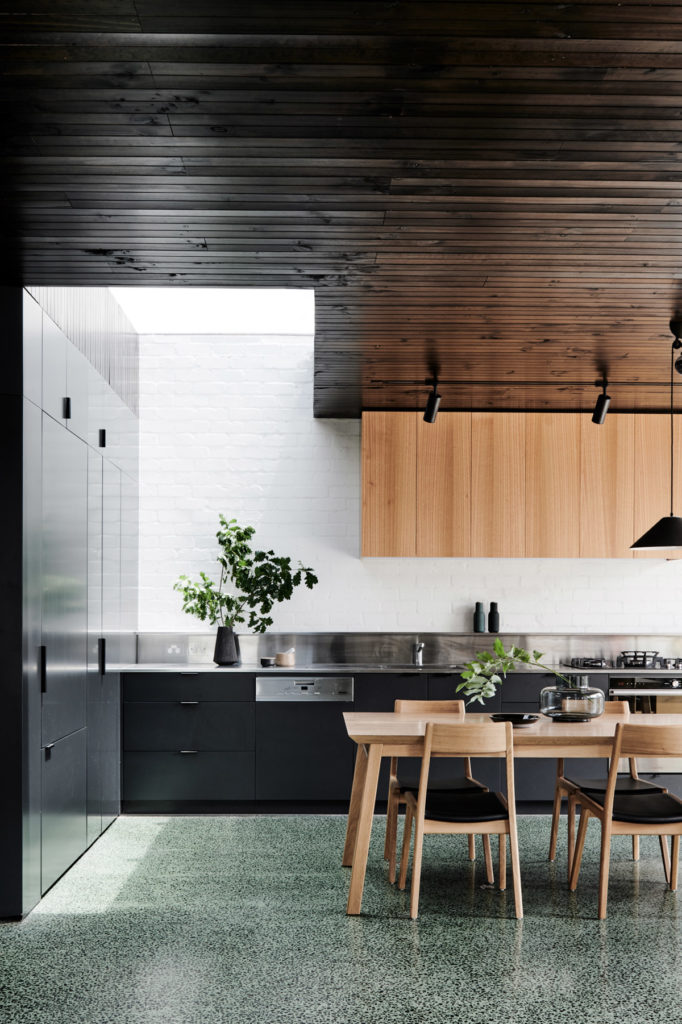
6. Stainless steel
Stainless steel is a metal that can add a modern edge to your kitchen. We particularly like the look of it with raw timber cabinetry.
The pros: There’s a reason commercial kitchens favour stainless steel benchtops – it’s hard-wearing and very hygienic. You’ll be able to get your sinks fully integrated, meaning there’ll be no little cracks or seams for grime to get stuck in. You can get stainless steel benchtops repolished to restore them.
The cons: You have to be comfortable with visible scratches. They will happen and you will be able to see them. Also, it can be hard to get stainless steel looking properly squeaky clean.
Feature Image photography: Tom Blachford



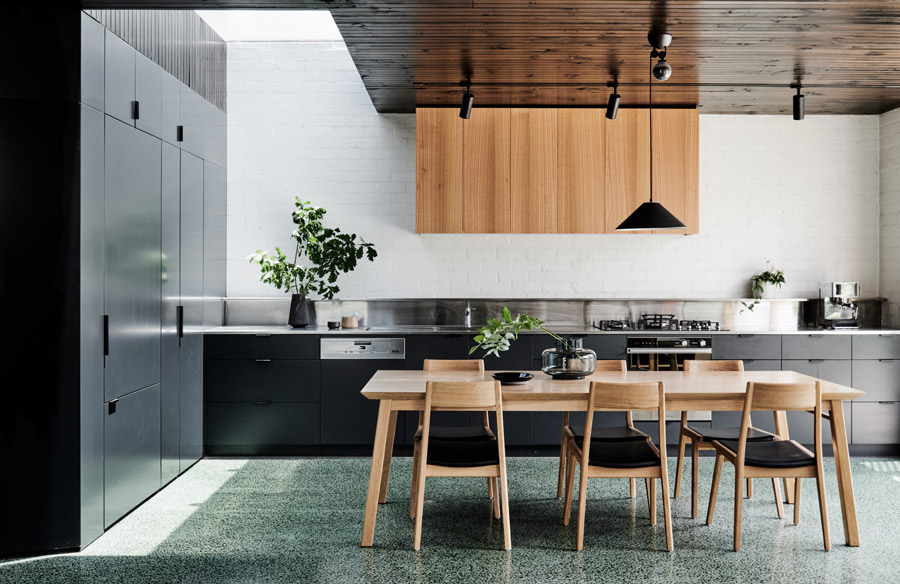
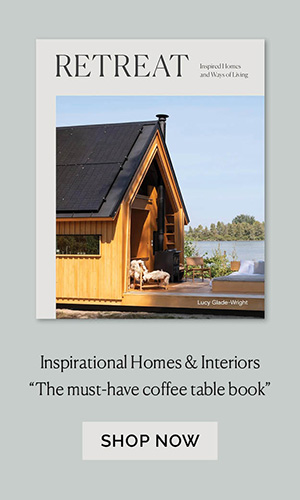


Great round up! We just went with resin bench tops – EvoStone is the brand – as recommended by our joiner friend. It looks like stone, but functions like an acrylic, so the joiners were able to build and install it themselves, saving on an additional trade (like a stone mason). And if it chips, they can polish the chips out. Probably too early to recommend it, but it looks good so far!
Love this- great insights!
Nice content and guide that everyone can refer through. Totally agree with the stainless steels pros and cons.
Hi
Very informative.
Which kitchen benchtop and sink are the quietest? We have noisy people dropping cutlery on the stainless steel and it sure clatters through the house. Would it be quartz or a laminated product or something else? I would like to put carpet up there!!
Cheers
Rog